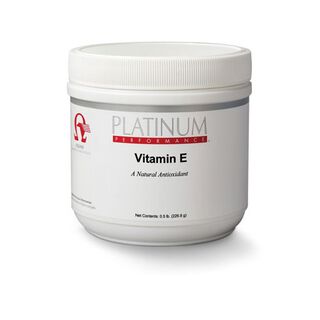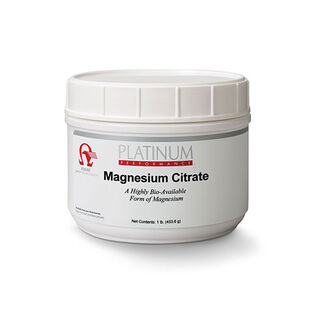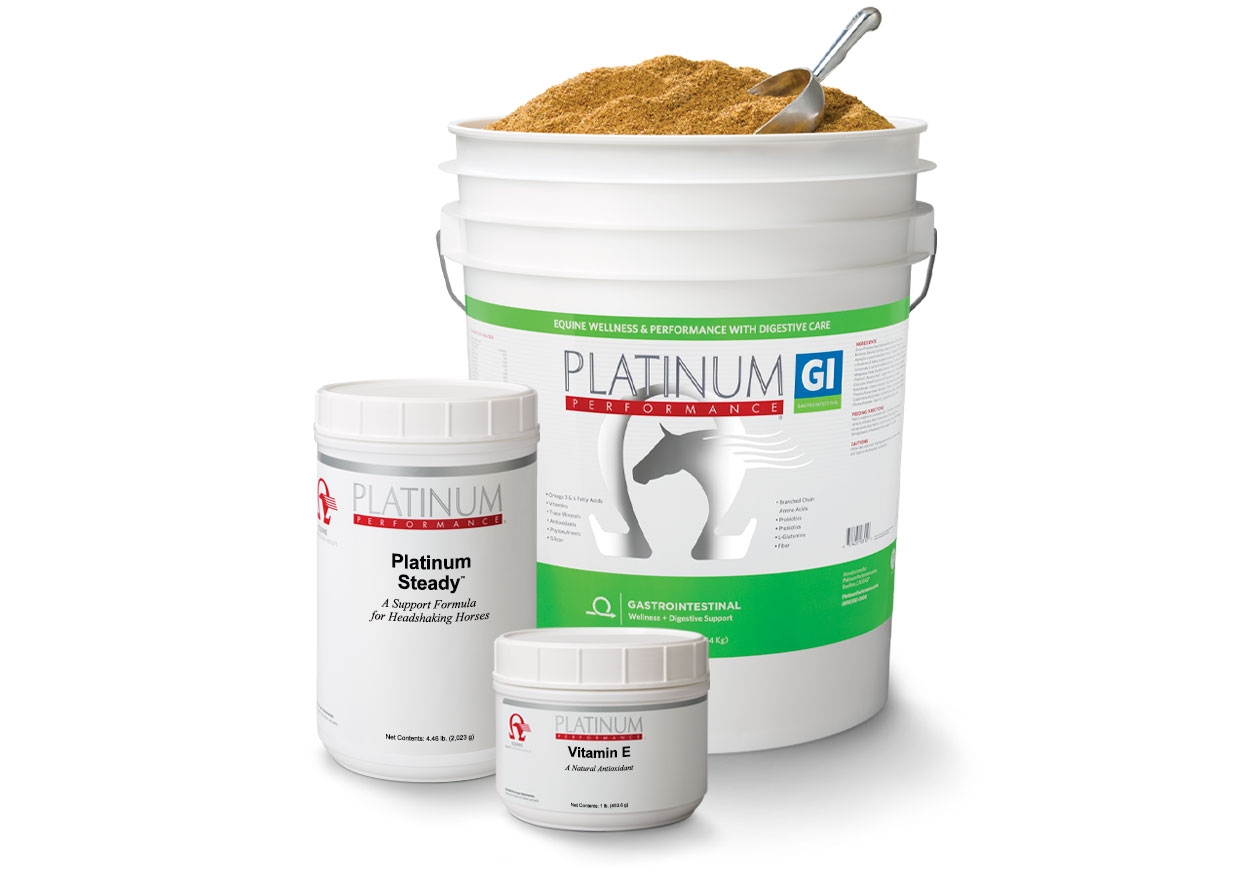
Don't Get on Your Horse's Last Nerve
Nutritional Support for Neurologic Health
Nutrition can be a powerful tool to support a horse’s nervous system function. Omega-3 fatty acids, antioxidants and vitamins can all help protect the body’s tissues from free radical damage and support neurological function.
Shop Formulas Now“So many cases that we get here in the hospital, even though they come to a specialized center and a referral hospital, the core issues can be supported by just changing their nutrition.”
— Melissa Fenn, DVM, MS, DACVIM, Littleton Equine Medical Center
Nutrition to Support Neurologic Health
Platinum Performance® GI provides a gastrointestinal-focused approach to total horse health. Because an estimated 70-80 percent of the immune system lives in a horse’s digestive tract, gut health is not only important for proper digestion but also has far reaching implications on immune health and comprehensive wellness. This veterinary-developed formula provides omega-3 fatty acids, antioxidants, vitamins and trace minerals for total body health, along with Bio-Sponge®, prebiotics, probiotics and glutamine for advanced digestive support.
$15KThis formula qualifies for Platinum Colic Coverage®Platinum Colic Coverage®. Enrollment is required.
Recommended daily dosage for a 1,000 lb horse is 2 scoops, which is 2 servings.
Horses with trigeminal-mediated headshaking experience occasional discomfort, leading to poor quality of life in some cases. Platinum Steady™ has been shown to support horses that display headshaking behavior, when compared with a diet consisting of hay only. Platinum Steady™ should be used in conjunction with one of these four formulas for best results: Platinum Performance® Equine, Platinum Performance® GI, Platinum Performance® DJ, or Platinum Performance® CJ.
Vitamin E works as an antioxidant, helping to support cell activity and protects cell membranes from free radicals. It is often used to help performance horses that experience temporary muscle soreness.
More Details »

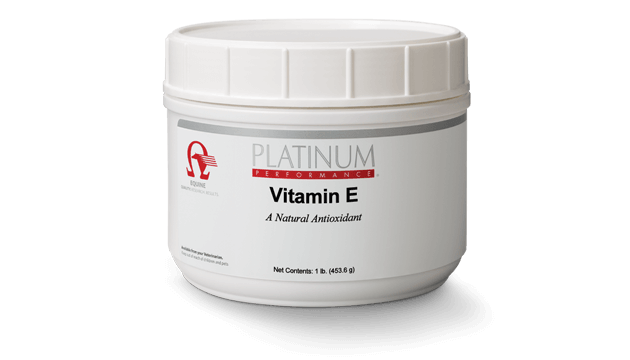
See Results with
A Natural Form of Vitamin E
Since we pride ourselves on providing top quality formulas, Vitamin E is made from its most bio-available natural form called d-alpha-tocopheryl acetate and each scoop contains 4,000 IUs of this potent antioxidant that works to support cell activity and protect cell membranes from free radicals.
Buy NowIs Your Horse a Headshaker?
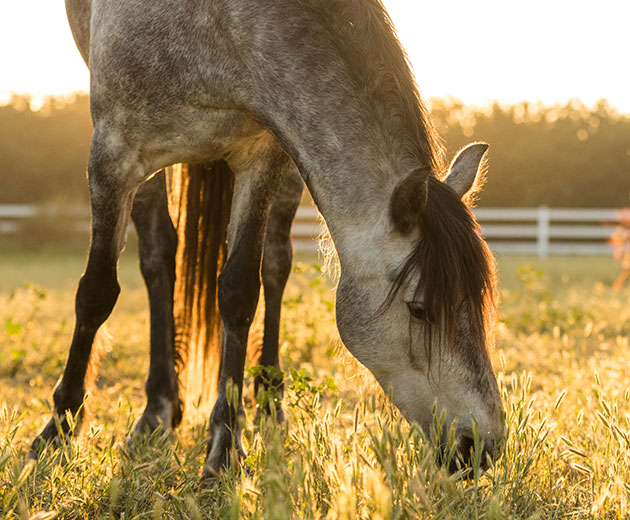
Is Your Horse a Headshaker?
Talk to your veterinarian if your horse displays any of these symptoms:
- Repetitive, involuntary up-and-down headshaking in a vertical motion.
- Sudden intense downward flick of nose or entire head and neck in more severe cases.
- Scratching or rubbing of the nose and muzzle on objects vigorously and incessantly.
- Rubbing on front legs or striking at the nose with forelegs.
- Seeks unusual places for shade such as hiding the head in buckets or barrels to block light.
- Affected horses may flip the head in reaction to wind, movement and stress.
- Extreme nose blowing, snorting and coughing.
- Displaying symptoms in spring and summer that abate in winter months.
- Headshaking is exacerbated with exercise.
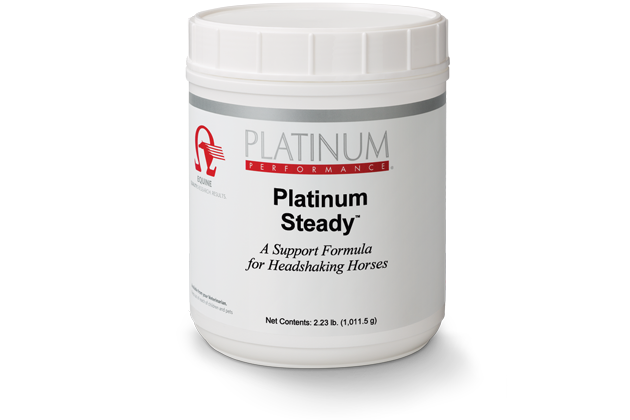
Nutritional Support for Headshaking
Platinum Steady™
This unique blend of magnesium and boron supports the relaxation of the trigeminal nerve and has been shown to support horses that display headshaking behavior, when compared to horses on a diet of hay only.
“After my horse was diagnosed with trigeminal headshaking, my vet helped me understand what his triggers were and had me put him on Platinum Steady. It has been a game-changer. I have been able to ride him again and he is much more comfortable.”
—Kris D. and GB

You May Also Enjoy
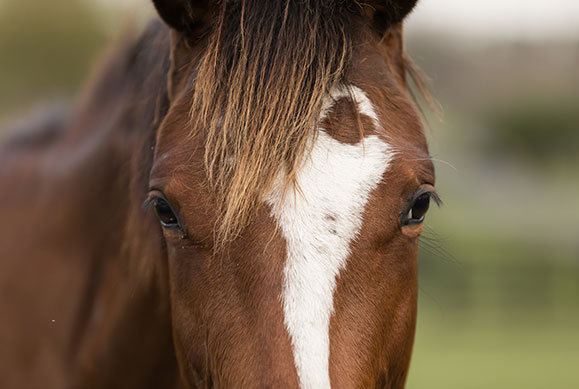
Headshaking in Horses
A closer look at Trigeminal Mediated Headshaking, recent advancements and practical advice for management
Read Moreabout Headshaking in Horses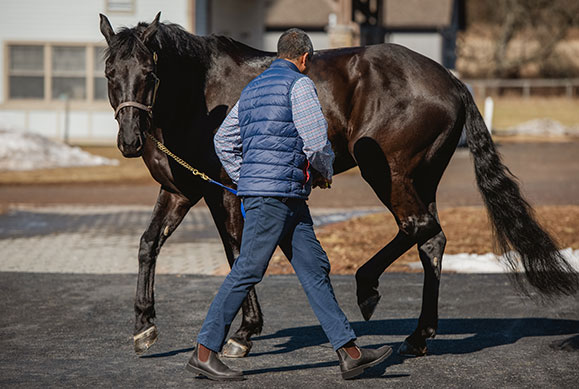
EPM in Horses
The evolution, treatment and prevention of Equine Protozoal Myeloencephalitis.
Read More about EPM in Horses
Managing Common Muscle Disorders in Horses
Management procedures and specific dietary interventions can help reduce the severity and the frequency of episodes.
Read More about Managing Common Muscle Disorders in Horses



